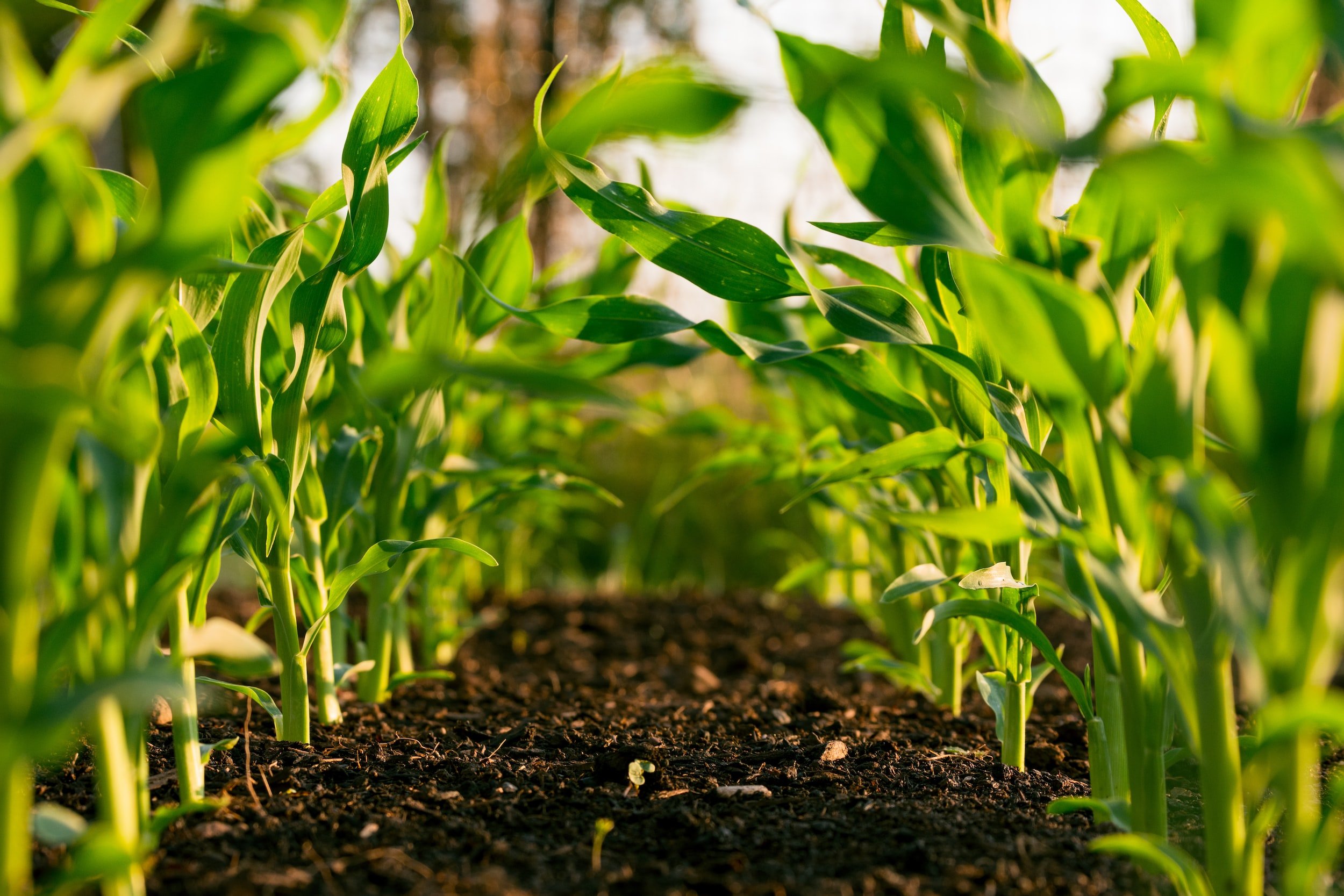By: Max Bridges, Staff Member
On February 19, 2013, oral arguments were heard before the Supreme Court in a classic David and Goliath case,
Bowman v. Monsanto
, No. 11-796.[1] On one side, there's Vernon Hugh Bowman, a 75 year old farmer from southwestern Indiana, and the other, the agricultural giant, Monsanto.
In 1999, Vernon Hugh Bowman began purchasing Monsanto's patented Roundup Ready soybeans which have been genetically altered to resist the herbicide Roundup. As a condition of use, farmers must sign Monsanto's Technology Agreement which states that growers may only use the seed for a single season and may not sell the seeds to any other grower.[2] Bowman followed the terms of the agreement by not selling any of the seed from his main crop. However, beginning in 1999, he purchased second-generation seed from a grain elevator for his second planting and saved seeds from that purchase.[3] In 2007, Monsanto sued Bowman for violating their patent protection by purchasing the second generation GM seeds from the grain elevator.[4]
The Supreme Court only has to decide the very narrow issue of whether a patent right for self-replicating technologies expires after an authorized sale.[5] Bowman's attorneys have argued the doctrine of patent exhaustion should shield Bowman from liability. This doctrine states that the unconditioned sale of a patented article ends the patentee's monopoly right to control its use.[6] In other words, if you buy something covered by a patent you own it outright and are allowed to use it for your "ordinary pursuits of life."[7]
But Monsanto's David Snively says this argument misses the point. According to Snively, we can buy an iPhone and do whatever we want with it, "but we're not going to go out and make copies of the iPhone and put Apple out of business."[8] If farmers are allowed to plant the patented seeds (which creates copies of the patent) without paying Monsanto, the patents would be worthless.
SCOTUS is likely to agree with Monsanto. At a freewheeling and almost one-sided oral argument, the justices "seemed alert to the consequences of their eventual ruling not only for Monsanto's very lucrative soybean patents but also for modern agriculture generally and for areas as varied as vaccines, cell lines and software."[9]
Monsanto also has the case law in its favor. In 1980, the Supreme Court ruled by a 5-4 margin that living organisms could be patented,[10] and in 2001 the Court upheld the patenting of plants.[11] Finally, when suing farmers who save their seeds, Monsanto has never lost in court. Since 1997, Monsanto has filed 145 lawsuits against seed-saving farmers. Only 9 cases have gone to full trial (most settle) and Monsanto has been victorious each time.[12]
While I thoroughly believe businesses should be paid for their product and that patents encourage innovation,
Bowman v. Monsanto
offers the Court the perfect opportunity to determine a much broader issue: is Monsanto using patent enforcement to control their monopoly on a vital resource? The answer is yes. Monsanto's patented seeds account for 93% of the soybean industry and 80% of corn.[13] To no one's surprise, the cost of farming has drastically risen. Since the introduction of GM seed, "the average cost of soybean seed to plant one acre has risen by a dramatic 325 percent, from $13.32 to $56.58. Similar trends exist for corn and cotton seeds: cotton seeds spiked 516 percent from 1995 to 2011 and corn seed costs rose 259 percent over the same period."[14]
This monopoly stifles innovation and reduces seed diversity leaving our crops more vulnerable to "superweeds."[15] Twenty years ago it was common for dealers to sell inexpensive, "public" soybeans. Nowadays, almost all soybean seeds are patented. USDA economists have found that recent seed industry consolidation has reduced research and likely resulted in fewer crop varieties.[16]
Finally,
Bowman v. Monsanto
raises a more fundamental problem: why are we defending Goliath against David? America was founded on the backs of hard-working farmers and yet today, we are more willing to protect the immortal corporation. Do you remember the touching Super Bowl advertisement by Dodge that brought many parties to a sudden and abrupt halt?[17] It was so moving because it elucidated the sacrifices that American
farmers
, not corporations, have made to feed our nation. As Paul Harvey so eloquently said, "And on the eighth day, God looked down on his planned paradise and said I need a caretaker - so God made a farmer." I pray we don't forget this.
______________________
[1]
Bowman v. Monsanto
,
SCOTUS Blog
, http://www.scotusblog.com/case-files/cases/bowman-v-monsanto-co/ (last visited March 4, 2013).
[2]
Bowman v. Monsanto
,
OYEZ
, http://www.oyez.org/cases/2010-2019/2012/2012_11_796#argument (last visited March 4, 2013).
[3]
Id.
[4] Aviva Shen,
How One 75-Year-Old Farmer Could Deal a Blow to Monsanto's Empire
,
Nation of Change
(February 20, 2013), http://www.nationofchange.org/how-one-75-year-old-soybean-farmer-could-deal-blow-monsanto-s-empire-today-1361373405.
[5]
OYEZ
,
supra
note 2.
[6]
Black's Law Dictionary
, (9th ed. 2009).
[7] Dan Charles,
Farmer's Fight with Monsanto Reaches the Supreme Court
,
NPR - The Salt
(February 18, 2013), http://www.npr.org/blogs/thesalt/2013/02/18/171896311/farmers-fight-with-monsanto-reaches-the-supreme-court.
[8]
Id.
[9] Adam Liptak,
Supreme Court Appears to Defend Patent on Soybean
,
The New York Times
(February 19, 2013), http://www.nytimes.com/2013/02/20/business/justices-signal-a-monsanto-edge-in-patent-case.html?_r=0.
[10]
Diamond v. Chakrabarty
, 447 U.S. 303 (1980).
[11]
J.E.M. Ag Supply, Inc. v. Pioneer Hi-Bred Int'l, Inc.
, 534 U.S. 124 (2001).
[12]
Why Does Monsanto Sue Farmers Who Save Seeds
,
Monsanto
, http://www.monsanto.com/newsviews/Pages/why-does-monsanto-sue-farmers-who-save-seeds.aspx (last visited March 4, 2013).
[13] Peter Whoriskey,
Monsanto's Dominance Draws Antitrust Inquiry
,
The Washington Post
(November 29, 2009), http://www.washingtonpost.com/wp-dyn/content/article/2009/11/28/AR2009112802471_pf.html.
[14]
Seed Giants vs. U.S. Farmers
,
Center for Food Safety and Save our Seeds (2013)
, http://www.centerforfoodsafety.org/wp-content/uploads/2013/02/Seed-Giants_final.pdf, at 8-9.
[15] Aviva Shen,
Superweed Lead to Heavier Pesticide Use on Crops
,
Think Progress
(October 3, 2012), http://thinkprogress.org/health/2012/10/03/946801/superweeds-pesticides/?mobile=nc.
[16]
Seed Giants vs. U.S. Farmers
,
supra
note 14, at 9.
[17] Official Ram Trucks Super Bowl Commercial "Farmer," http://www.youtube.com/watch?v=AMpZ0TGjbWE (last visited March 4, 2013).

